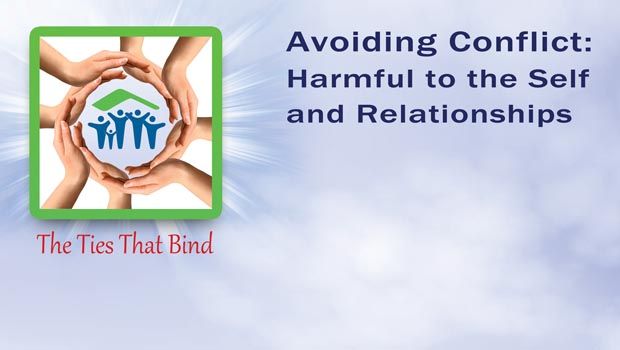It has been over ten years now that I have been a Muslim, alhamdulillah (all praise is due to Allah). I was born in Colombia into a Catholic family, so from my early days in Islam, I was very aware that my actions would be questioned on the Day of Judgment. More than three years ago, I had the privilege of becoming a mother. At that time, I realized that not only would I be questioned about my Islam, but also about that of my children. I had become the mother of a believer. That led me to question the role of Muslim women in developing an ideal environment in societies where Muslims are a minority so that our children grow up to be good Muslims and have knowledge of the Quran and Sunnah. It is clear that Allah is the one who guides the hearts, but it is our duty as Muslim women and as mothers to prepare the social and family environment for our children to develop into good Muslims.
It is the right of Muslim children that the environment in which they are raised is in line with the principles and values that are Islamically ordained
This article is adapted from a study by the wife of the renowned Dr. Bilal Philips, who conducted research while living in Qatar. She interviewed mothers of Muslims who were considered pious to see what factors in the home and environment, as well as what habits and characteristics the parents had, that made raising good Muslim children possible. My focus is on the reality of Muslim women living in societies where Muslims are not the majority, unlike Qatar, so as to learn how to establish a suitable environment, healthy and loving family dynamic, and parental characteristics that all facilitate an Islamic upbringing for the children.
First of all, we must have a clear objective in raising our children and that should be to raise righteous Muslims so that they can gain paradise — Muslims who are clear that we are in this life to worship Allah and seek His pleasure. The Prophet, peace be upon him (p), mentioned that Paradise is promised to the children who are raised as righteous and pious Muslims. Narrated Abu Hurairah, may Allah be pleased with him, the Prophet (p) said as part of a longer hadith, “Seven people will be shaded by Allah under His shade on the Day when there will be no shade except His. They are a just ruler, a young man who has been brought up in the worship of Allah…” (Bukhari)
The first factor necessary in the raising of righteous believers is taqwa, piety or God-consciousness. It is the right of every Muslim child that his or her parents be righteous and pious. Allah has promised as one of the fruits of taqwa, pious children. Parents should ensure that their beliefs are in accordance with the Quran and Sunnah, and that they implement and put into practice whatever they know and learn. Allah says in the Quran: “And whosoever fears Allah and keeps his duty to Him, He will make a way for him to get out [from every difficulty]. And He will provide him from [sources] he never could imagine” (Qur’an, 65:2-3).
The way to obtain taqwa is through knowledge that leads to purifying of the heart. It is essential that the Muslim woman become educated and aware of Allah, His attributes, and everything that is relevant to the transmission of Islamic knowledge to her children. Islamic education does not begin when our children go to school; it begins earlier with the parents. It is the right of Muslim children that the environment in which they are raised is in line with the principles and values that are Islamically ordained.
The second factor that facilitates the raising of righteous Muslims is making dua (supplication) for them. It is the right of Muslim children that their parents pray for them, even before birth, so much so that we are taught to make a prayer every time we are intimate with our spouses, in which we ask Allah to protect our children in case they are born as a result of that intimacy. Allah says in the Qur’an: “And those who say: ‘Our Lord! Bestow on us from our wives and our offspring the comfort of our eyes, and make us leaders of the righteous’” (25:74). As parents, we should make heartfelt pleas asking for pious children, with the certainty that our prayers will be answered. However, we should also note that for our prayers to be answered, we should be upright individuals, ensure that our hearts are supple with surrender, and make our supplications sincere and full of yearning.
The third factor necessary in the raising of righteous believers is the right of the Muslim child to have parents that are, themselves, good examples of virtue. Parents cannot ask a child to do something that they are not in the habit of doing. Allah severely criticizes those who do this: “Do you enjoin righteousness on the people and forget yourselves [to practice it]. And yet you study the Scripture! Have you then no sense?” (Qur’an 2:44). We can force children to do whatever we demand of them, but that does not mean they have internalized the desired trait or behavior and will continue to act as such when they are no longer under parental supervision. Parents should strive to be the best example for their children because good character is formed at home. And children will most often imitate the parents, be it in goodness or wrongdoing.
The fourth factor is attachment parenting which is an approach to childrearing that is based upon sensitive and emotionally available parenting. It is the child’s right to be treated with affection, love, and caring. This begins with breastfeeding. It is essential for the psychological and emotional development of the child to create this bond with the mother. Allah has prescribed up to two years of breastfeeding. It says in the Quran: “And the [divorced] mothers may nurse their children for two whole years, if they wish to complete the period of nursing; and it is incumbent upon him who has begotten the child to provide in a fair manner for their sustenance and clothing. No human being shall be burdened with more than he is able to bear” (2:233).
In recent times society had moved away from this. The importance of breastfeeding exclusively for the first six months, however, has gained traction more recently and its benefits have once again been emphasized by many in the medical community. The World Health Organization recommends “continued breastfeeding along with appropriate complementary foods up to two years of age…” The benefit of breastfeeding was established in our Islamic traditions over 1400 years ago as the bond between mother and child forms the basis for an ongoing parent-child relationship infused with love and mercy. The Prophet (p) said: “He is not one of us who is not merciful to our children.” This right of children that their parents be merciful to them must be granted by both parents—giving them quality time, attention, understanding, affection, and a profound sense of security.
The fifth factor necessary in the raising of righteous believers is the right of children to be educated in Islam. As Prophet Muhammad (p) said: “Seeking knowledge is an obligation for every Muslim.” This refers, first and foremost, to Islamic knowledge, and should begin at an early age. Children should be taught aqeedah (doctrine), good manners, and acts of worship, appropriate to their age, of course. It is also important to promote in our children the goal of obtaining professional education. However, the intention should not be a materialistic or worldly one, with no reference to the Hereafter. The goal of earning college degrees and building successful careers should be ingrained in our children as being supplemental to the goal of being Islamically knowledgeable and virtuous. Thus, higher education is to be used to serve Allah SWT, the ummah, and humanity. We should teach our children a love of the Prophet Muhammad (p) through stories, and teach them about good and evil and the recompense in heaven or hell for one’s life choices, always on a level appropriate to their age and degree of maturity and understanding.
And we must teach our children about ihsan, the striving for perfection, an excellence that comes with demonstrating and expressing the conviction of one’s inner faith in daily words and actions. We must embody, in the eyes of our growing, impressionable children, the devotion that stems from loving, worshipping, and trusting Allah SWT so deeply that the relationship with Him is as if one sees Him — that immediate, that heartfelt, indelibly motivating toward goodness. We must make sure our children know how Prophet Muhammad (p) has described ihsan: “… to worship God as though you see Him, and if you cannot see Him, then indeed [know that] He sees you” (Al-Bukhari and Al-Muslim).
The sixth factor is the right of a Muslim child to have a home in which there is a positive environment, where the Quran and the Sunnah of the Prophet (p) are practiced. We must have in our homes everything needed to create a peaceful and stable environment for our children. Many elements contribute to this kind of environment, but listening to the Quran and surrounding ourselves with religious people, those of good character, are essential.
Additionally, we must teach our children how to answer questions and queries about Islam, and especially how to interact with love and compassion with those who do not follow our faith. Agreement and mutual support between parents are essential when disciplining or setting limits for children. The parents must share the same vision of childrearing and consult with each other so as to establish an agreed-upon set of guidelines and rules for discipline. We should also reward our children when they are deserving, with positive reinforcement, expressions of appreciation and gratitude, and occasionally with a material reward, in order to promote their good deeds and support their growth and development.
Finally, if we understand our religion, we can play an active part in the society, without sacrificing our identity as Muslims; and through example, to instill in our children that being a Muslim not only means working for our communities, but seeking social improvement in general. We should be proud of the role we have as Muslim women, and as mothers of the future generations of believers, and the importance of our role in cultivating Islamic principles in our children so that they can be agents of positive, healthy, and balanced change and development in the society.






